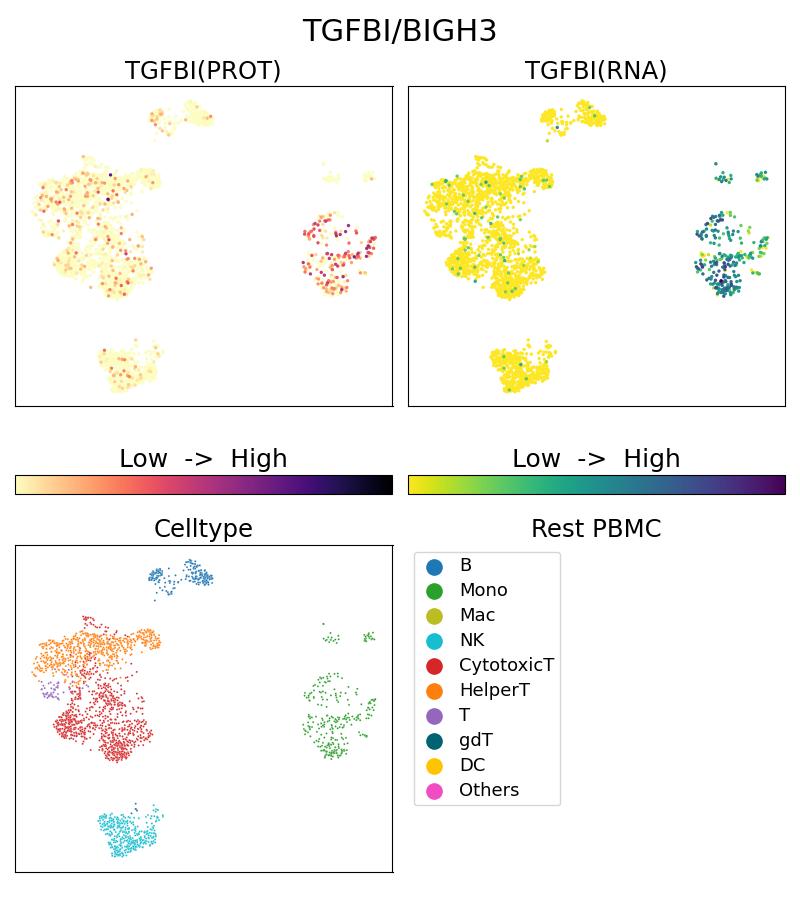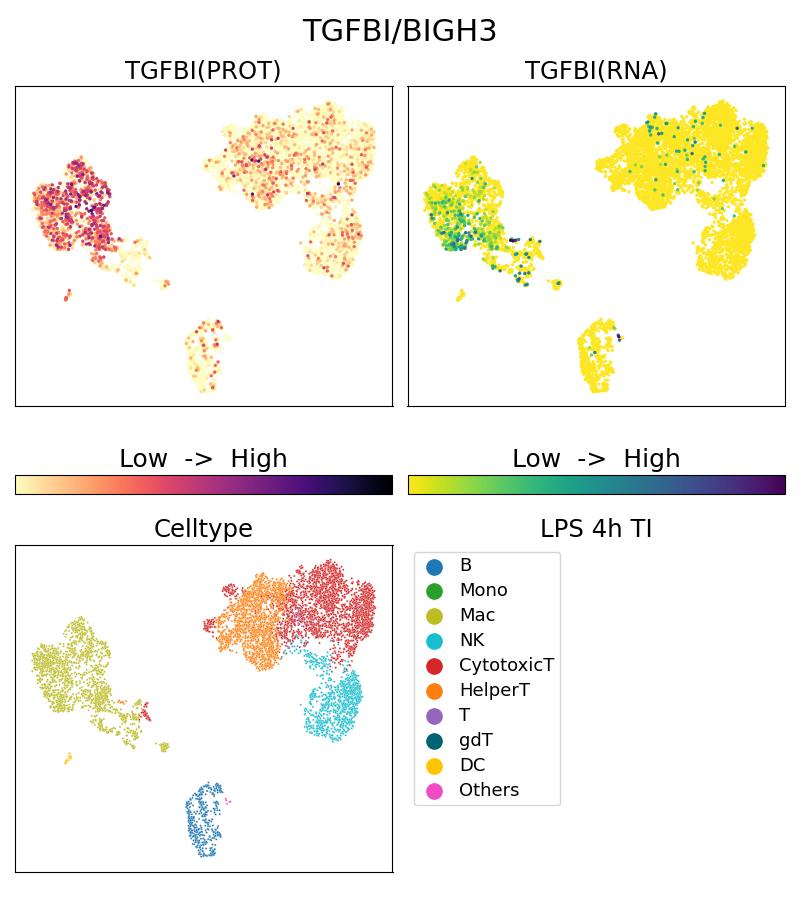验证数据展示
经过测试的应用
| Positive Single Cell (Intra) detected in | 10x Genomics Gene Expression Flex with Feature Barcodes and Multiplexing product. |
推荐稀释比
| 应用 | 推荐稀释比 |
|---|---|
| SINGLE CELL (INTRA) | <0.5ug/test |
| It is recommended that this reagent should be titrated in each testing system to obtain optimal results. | |
产品信息
G60007-1-5C targets TGFBI / BIGH3 in Single Cell (Intra) applications and shows reactivity with Human samples.
| 经测试应用 | Single Cell (Intra) Application Description |
| 经测试反应性 | Human |
| 免疫原 | TGFBI / BIGH3 fusion protein Ag0241 种属同源性预测 |
| 宿主/亚型 | Mouse / IgG2a |
| 抗体类别 | Oligo Conjugate |
| 产品类型 | Monoclonal |
| 全称 | MultiPro® 5CFLX Anti-Human TGFBI/BIGH3 (3E11D11) |
| 别名 | Beta ig h3, BIGH3, CDB1, CDG2, CDGG1, CSD, CSD1, CSD2, CSD3, EBMD, Kerato epithelin, LCD1, RGD CAP, TGFBI, TGFBI / BIGH3 |
| 计算分子量 | 683 aa, 75 kDa |
| GenBank蛋白编号 | BC000097 |
| 基因名称 | TGFBI |
| Gene ID (NCBI) | 7045 |
| ENSEMBL Gene ID | ENSG00000120708 |
| RRID | AB_3673898 |
| 偶联类型 | 5CFLX |
| 完整寡核苷酸序列 | CGGAGATGTGTATAAGAGACAGTCCAAGGTAACTGCGCCCATATAAGAAA |
| 条形码序列 | TCCAAGGTAACTGCG |
| 形式 | Liquid |
| UNIPROT ID | Q15582 |
| 储存缓冲液 | PBS with 1mM EDTA and 0.09% sodium azide , pH 7.3 |
| 储存条件 | 2-8°C Stable for one year after shipment. |
背景介绍
TGFBI, also named as BIGH3, Kerato-epithelin and RGD-CAP, binds to type I, II, and IV collagens. TGFBI is an adhesion protein which may play an important role in cell-collagen interactions. In cartilage, it may be involved in endochondral bone formation. TGFBI is an extracellular matrix adaptor protein, it has been reported to be differentially expressed in transformed tissues. TGFBI is a predictive factor of the response to chemotherapy, and suggest the use of TGFBI-derived peptides as possible therapeutic adjuvants for the enhancement of responses to chemotherapy.(PMID:20509890) Defects in TGFBI are the cause of epithelial basement membrane corneal dystrophy (EBMD). Defects in TGFBI are the cause of corneal dystrophy Groenouw type 1 (CDGG1). Defects in TGFBI are the cause of corneal dystrophy lattice type 1 (CDL1). Defects in TGFBI are a cause of corneal dystrophy Thiel-Behnke type (CDTB). Defects in TGFBI are the cause of Reis-Buecklers corneal dystrophy (CDRB). Defects in TGFBI are the cause of lattice corneal dystrophy type 3A (CDL3A). Defects in TGFBI are the cause of Avellino corneal dystrophy (ACD).
Protocols
| Our current MultiPro staining protocol for the cocktail | Download protocol |
| 10x Genomics CG000149_Demonstrated Protocol CellSurface Protein Labeling_Rev D.pdf | Download protocol |

